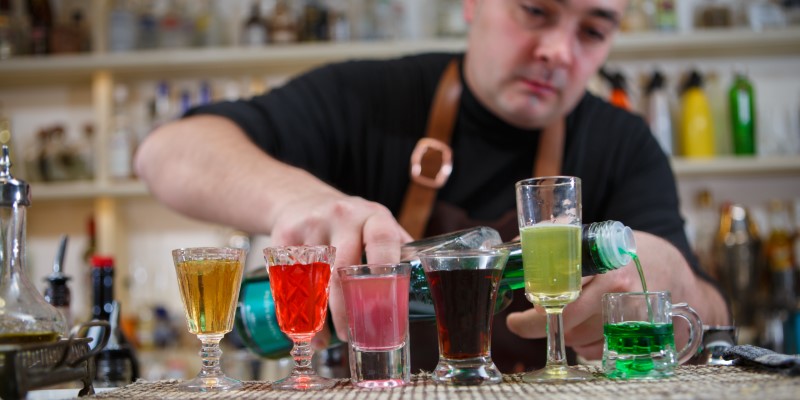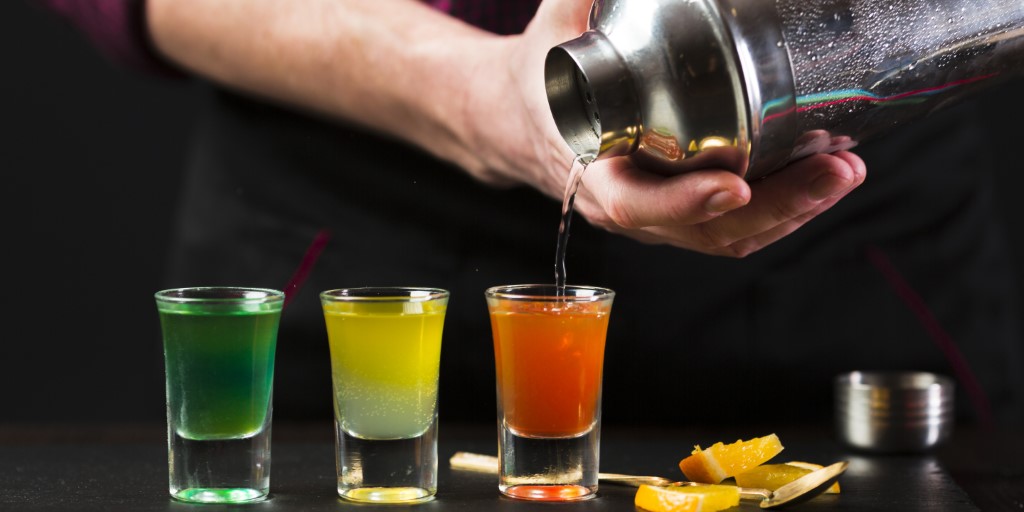The sober-curious movement has gained significant traction in recent years as people rethink their relationship with alcohol. With growing concerns about health, wellness, and mindful living, more individuals are choosing to reduce or eliminate alcohol consumption. In this landscape, alcohol alternatives have become a popular choice for those seeking flavorful, social beverages without the downsides of traditional alcoholic drinks. These alternatives range from non-alcoholic beers and wines to innovative concoctions designed to mimic the experience of drinking without the intoxicating effects.
What Does It Mean To Be Sober-Curious?
Being sober-curious is not necessarily about giving up alcohol for good. Instead, it involves a conscious decision to cut back on drinking, explore how life feels without alcohol, and become more mindful of consumption habits. This growing trend often appeals to people who may not identify as having a drinking problem but are nonetheless interested in better health, mental clarity, and overall well-being. It's a way of questioning societal norms surrounding alcohol without the commitment to lifelong sobriety.
The sober-curious movement has made space for a middle ground, offering people an opportunity to enjoy the social aspects of drinking without negative consequences like hangovers or health risks. This shift has led to the rising popularity of alcohol alternatives that provide a similar experience without the physical and mental effects of alcohol.

Why Alcohol Alternatives Are Gaining Popularity?
Several factors are driving the increasing demand for alcohol alternatives. Health-conscious consumers are increasingly recognizing the harmful effects alcohol can have on the body. Excessive drinking is linked to various health problems, including liver disease, heart issues, and even mental health struggles. As awareness grows, many individuals are opting to reduce their alcohol intake while still enjoying beverages that can be part of their social life.
Millennials and Gen Z are embracing wellness trends at a growing rate, motivated by a combination of health awareness and lifestyle choices. This demographic is shifting away from heavy drinking, opting instead for more balanced lifestyles that prioritize mental clarity, physical health, and well-being. Alcohol alternatives provide a way to enjoy a night out or a gathering with friends while avoiding the unwanted effects of alcohol.
Moreover, societal shifts in the perception of sobriety and moderation have made it more acceptable to choose non-alcoholic options. Gone are the days when declining a drink was seen as antisocial or boring. Today, brands are capitalizing on this trend by offering various alcohol-free beverages catering to different tastes and preferences.

Types Of Alcohol Alternatives
The variety of alcohol alternatives available today reflects the diversity of consumer preferences. These beverages are crafted to provide the same enjoyment as their alcoholic counterparts but without the intoxication.
Non-Alcoholic Beers
Non-alcoholic beer has been around for decades, but in recent years, it has experienced a resurgence in popularity. Brewers have worked to improve the taste, texture, and overall experience of these beverages, making them almost indistinguishable from traditional beers. Today’s non-alcoholic beers are available in various styles, from lagers to IPAs, catering to those who still want the familiar taste of beer without the alcohol.
Non-Alcoholic Wines
For wine lovers, non-alcoholic wine offers a great alternative. These wines are made by removing the alcohol from the wine-making process while maintaining the flavours, aromas, and complexities that make wine enjoyable. Whether it's a rich red or a crisp white, there are non-alcoholic options for every palate. With brands increasingly offering sophisticated varieties, non-alcoholic wines are becoming more than just a substitute — they’re a preferred choice for many.
Functional Drinks
One of the most innovative trends in the alcohol alternative space is the rise of functional drinks. These beverages promote health and wellness while offering a satisfying drinking experience. Many functional drinks contain adaptogens, nootropics, or CBD, which can enhance relaxation, focus, or overall well-being. Rather than just mimicking the taste of alcohol, these drinks offer additional benefits that align with a health-conscious lifestyle.

The Health Benefits Of Alcohol Alternatives
Choosing alcohol alternatives offers several health benefits, especially for those looking to improve their overall well-being. Alcohol-free beverages eliminate the risk of health problems associated with alcohol use, including liver damage, heart disease, and certain types of cancer. By cutting back on alcohol, individuals can also experience better sleep, improved mental clarity, and fewer mood swings.
Additionally, alcohol alternatives often contain fewer calories and less sugar than traditional alcoholic drinks. This can be a significant advantage for people trying to maintain or achieve a healthy weight. Many non-alcoholic options are crafted with natural ingredients and avoid the preservatives or artificial additives in alcoholic beverages.
Finally, the absence of alcohol eliminates the risk of addiction and dependency. Alcohol can be highly addictive, and even casual drinkers may find themselves developing unhealthy patterns of consumption. Opting for alcohol alternatives reduces this risk and promotes a more mindful relationship with drinking.

The Future Of Alcohol Alternatives
As the sober-curious movement continues to grow, the market for alcohol alternatives is expected to expand as well. Beverage companies invest in research and development to create products that offer the same complexity and satisfaction as alcoholic drinks. With innovation in ingredients and production methods, the range of non-alcoholic options will likely continue diversifying.
Moreover, as more people prioritize wellness and mindful consumption, alcohol alternatives are poised to become a staple in many households. These beverages appeal not only to those who want to cut back on alcohol but also to anyone looking for healthier, more balanced choices in their diet.
The shift in how society views alcohol consumption, coupled with the growing availability of high-quality alternatives, suggests that the sober-curious trend is here to stay. Whether it’s for a special occasion or just a regular Tuesday night, alcohol alternatives offer an enjoyable, healthier option that suits a wide variety of lifestyles.

Conclusion
The sober-curious movement represents a broader cultural shift toward mindful living and wellness. As more people reconsider their relationship with alcohol, the demand for alcohol alternatives is set to grow. From non-alcoholic beers and wines to innovative mocktails and functional drinks, these beverages offer a satisfying and healthy way to enjoy social occasions without the adverse effects of alcohol. Whether for health reasons or simply a desire for a clearer mind, alcohol alternatives provide a new way of thinking about drinking that resonates with today's health-conscious consumer.














